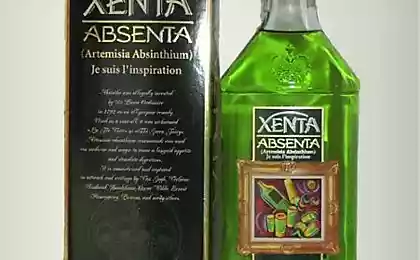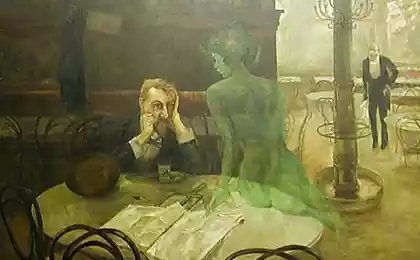627
The mystery of "Absinthe"
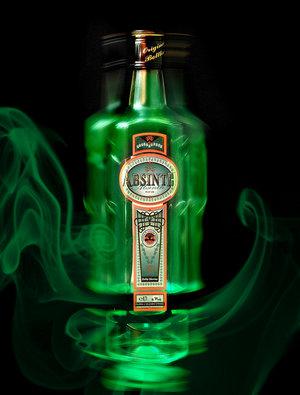
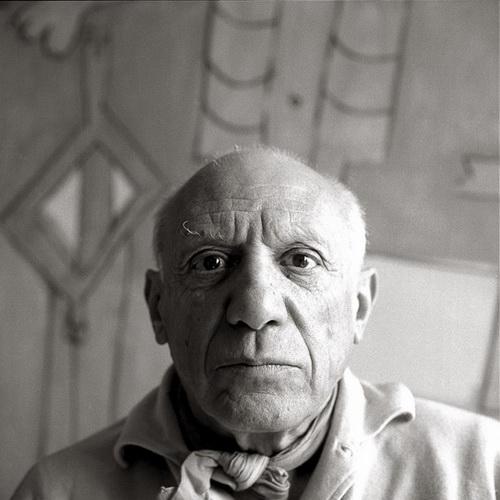
In art, the final classical tradition, the most remarkable phenomenon is undoubtedly Picasso. Unerring sense of border, sharp as a sense of the abyss, it allows him prodelyvat incredible things, to demonstrate the alleged absolute freedom and still be on the other side of the line that separates art in its classical sense of its decay products - a variety of types and forms, have different properties and functions . Picasso, who can be called a professional revolutionary in the arts, is a final chord of the classical tradition, like the thunder of the collapsing buildings.
Visitors to the Museum of Fine Arts AS Pushkin in Moscow usually linger in front of Pablo Picasso's "roving acrobats" - that it is very expressive figures of a man and a woman, hunched over with glasses with green potion, their eyes are empty, they stare blankly in different directions. Viewers clear that the artist painted some deep conflict between the two men. But what is its cause? Customers usually are not aware of it.
Meanwhile, the artist has depicted the cause of Drammen in the foreground of the painting: this indifferent to each other a couple of ... love absinthe! Why is love and absinthe are not compatible?
Absinthe - Green intoxicating drink, wormwood liqueur, was widespread in Western Europe, especially in the late 19th and early twentieth century, today few people remember that people are addicted to absinthe paid for the love of this drink severe nervous and psychological disorders. < br />
Museum visitors probably do not realize that the man in the picture sluggish Picasso - impotent, and his girlfriend indifferent - abnormal watchful eye of the artist only accurately convey the painful condition absinthism - poisoning wormwood liqueur. Wide dissemination of this kind of drug almost led to the degeneration of the French nation.
"Absinth" in French - wormwood.
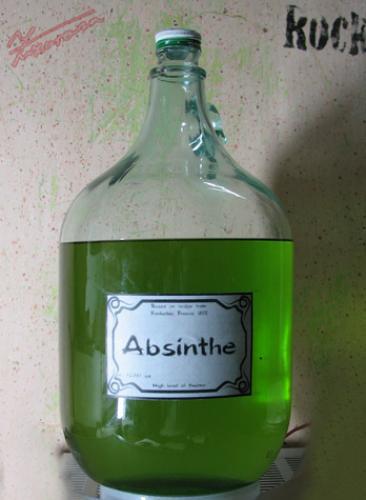
Wormwood tincture "discovered" the French soldiers who fought in Algeria and in the middle of the last century. They found that the tart, bitter and fragrant drink healthy intoxicate, creates a "high" causes unusual feelings and sensations. Soon absinthe spread, first in France and then in other countries of Western Evroppy. Of course predilection was formed under the influence of absinthe - or rather, the contained wormwood oil, strong gallyutsinagena, concentrated and well-known science called "thujone" (the first time this substance was isolated from the leaves of arborvitae).
Drink abuse that poets such as Paul Verlaine, Arthur Rimbaud, Charles Baudelaire, the absinthe can be contributed to the development of their Tallant? ... Not to a small degree. There is much evidence to suggest that these poets and artists created their masterpieces only when they udovalos attain clarity of mind, getting rid of the consequences of severe hangover wormwood. The addiction to absinthe gave rise to the name of the product such as "flowers of evil", "a season in hell" and was accompanied by a nervous breakdown, mental illness and suicide.
The victims became absenteeism and nefrantsuzy such as Ernest Hemingway, who not only did not hide the personal attachment to the "green miracle" and gave them the protagonist of the novel "For Whom the Bell Tolls" by Robert Jordan. But Jordan, as befits a positive hero, died beautifully, in combat, but Hemingway in a state of severe depression took a gun and shot himself in the mouth.
Poor souls Baudelaire, Van Gogh and Verlaine drank, I suppose, the real, unadulterated absinthe ... Rich Hemingway, in any case, certainly not used the counterfeit whether it helped him?
It is better, my dear compatriots, do not drink anything - no fakes, no "original"! Then certainly you can not go wrong, and you will not lose friends did not understand then what was happening, and what you've uttered a fool, what they wanted to say, did not want to say, and then, the next day wondering, is it for me to say is happened? And it is necessary at all? People lost faith and begin mental disorders, improper desire to prove continuously growing maturity and imaginary loyalty to their own truths.

